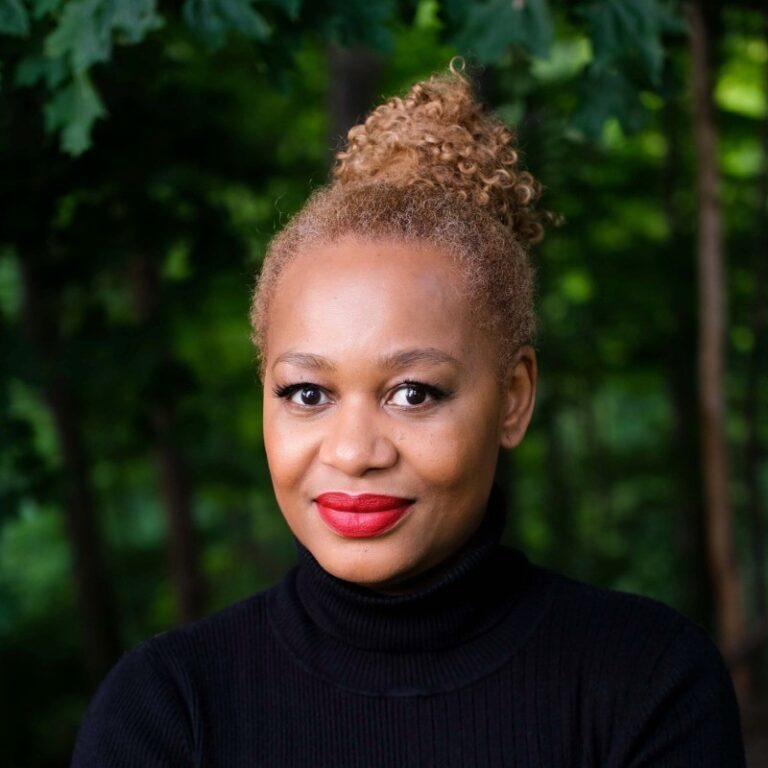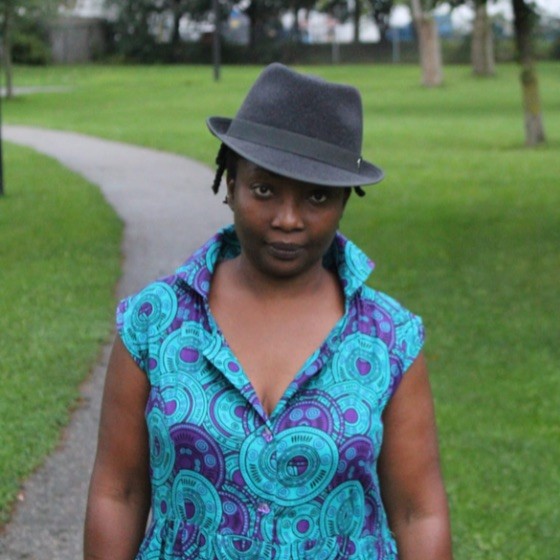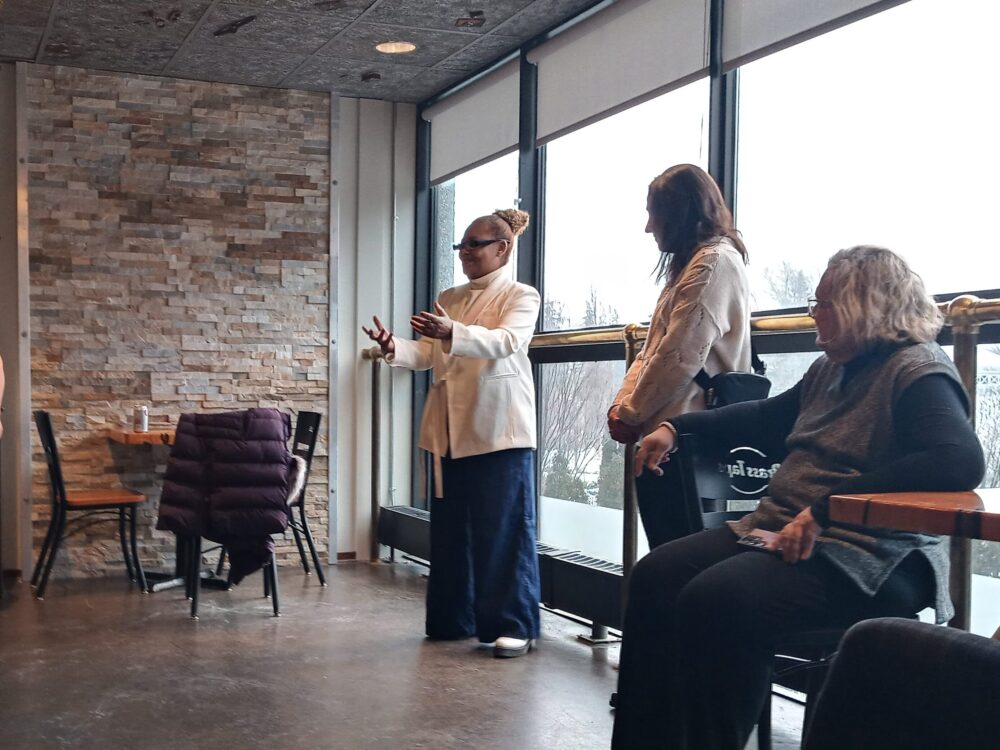
When Nneka MacGregor started supporting survivors of gender-based violence, she hoped to use her own experience as a survivor of intimate partner violence to inform better solutions. However, leaders in the sector didn’t always appreciate the value of her lived experience.
“The others around the table would look immediately crestfallen when they learned I was a survivor,” says MacGregor, one of two new activists-in-residence at the University of Guelph.
“I realized there was a minimization of expertise that survivors carry, even though we are the experts. There was a real need for an organization that recognizes lived experience and uses it to inform effective solutions.”
In 2008, MacGregor co-founded the Women’s Centre for Social Justice, better known as WomenattheCentrE, the first incorporated organization in Canada created explicitly by survivors, for survivors. The organization supports women and trans and gender non-conforming people, while engaging men and boys around education and law reform.
At the intersection of culture and identity

Fellow U of G activist-in-residence Dr. Marsha Hinds Myrie finds that the intersectionality of her lived experience growing up between Caribbean and Canadian cultures has shaped and guided her work.
“Being raised in the Caribbean intellectual tradition, I practice scholar-activism,” says Hinds Myrie, who started her career at U of G as a postdoctoral fellow on the President’s Gender Equity Committee.
“I bring into my scholarship my experience as a survivor and working with other survivors,” she says. “The Western colonial way of knowing is to be removed from the problems you’re working on, but my preferred way is to read and write about them while also working on the ground to make the change.”
Given the large diaspora of Caribbean-identified Canadians living in Canada, Hinds Myrie seeks to understand the experience of Blackness, anti-Black racism in Canada and how they’ve been affected by continuous movement.
U of G activists-in-residence program at the Grounded and Engaged Theory Lab (GET Lab) was founded in 2022 by Dr. Monique Deveaux in the Department of Philosophy and Dr. Candace Johnson in the Department of Political Science.
The GET Lab is an initiative of the College of Arts and the College of Social and Applied Human Sciences that works to illuminate and support different communities’ struggle for social justice.
A unique position that began in 2022, the activist-in-residence role merges academia and activism to centre the voices of members of justice-seeking communities. U of G remains one of only a handful of universities in Canada that offers such a position.
Hinds Myrie brings over 23 years of experience to the role and will continue her work on the ground working with survivors of gender-based violence in Barbados.
“This program is actually a form of reparations,” she says. “U of G is paying me a salary to keep working with groups in the Caribbean that need support and expertise. It’s putting money directly back into the communities harmed by colonial oppression at a grassroots level – reparations for a community that has given much to building the settler nation, Canada.”
Bringing activism into the classroom

“Marsha and Nneka’s skills and experience complement each other so well, which is why we chose them for this year’s activists-in-residence,” says Dr. Leah Levac, political science professor and Canada Research Chair in Critical Community Engagement and Public Policy who joined Deveaux and Johnson this year to support the program.
“With WomenatthecentrE, Nneka has been doing incredibly important national research projects with communities on topics like advancing gender equity for Black women, girls, gender-diverse and trans communities in Canada. Marsha brings an important and strong analysis of the intersection between Black liberation and anti-violence movements, and her research capacity links well with our team.”
As MacGregor interacts with the U of G community, she hopes students will get excited about the role of activism in their lives.
“Recently, I asked students what demonstrations they had gone to and started conversations about the issues that meant enough to get them out on the street,” says MacGregor. “By discussing these issues, I hope to show how activism is ultimately an act of love. If we hold different opinions but come at the work with love and kindness grounded in our humanity, then the world we create will not be as divided as it is now.”
Join the conversation
As a part of Black History Month, Hinds Myrie and MacGregor will hold a fireside chat to discuss Black women’s leadership in resisting and responding to gender-based violence locally, globally and transnationally. Joining them will be Don Mahleka, equity lead at the Guelph Community Health Centre.
This event is hosted by the activists in residence and the GET Lab and coordinated by Dr. Levac. All members of the Guelph community are invited to join on Feb. 8 from 7 to 9 p.m. at the Guelph Black Heritage Society’s Heritage Hall.
Register to attend Black Women’s Leadership in Resisting and Responding to Gender-Based Violence.
Contact:
Dr. Monique Deveaux
mdeveaux@uoguelph.ca
